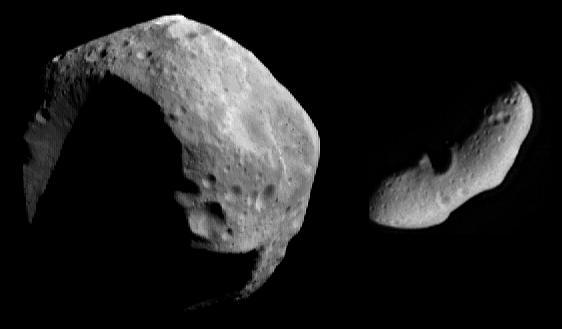
NASA has detected a total of three asteroids that will approach Earth this weekend. According to the space agency’s Center for Near Earth Object Studies (CNEOS), the largest asteroid from the group is almost as big as the Empire State Building.
The first asteroid to approach Earth has been identified by CNEOS as 2019 GT3. As indicated in the agency’s database, this asteroid is currently moving at a velocity of 30,500 miles per hour. The agency estimated that the asteroid is about 1,247 feet long, which makes it significantly taller than the Eiffel Tower in Paris.
According to CNEOS, 2019 GT3 has zipped past Earth on Sept. 6 at 12:21 am EDT. During its approach earlier today, the asteroid was about 0.04996 astronomical units or roughly 4.6 million miles from the Earth’s center.
Trailing behind 2019 GT3 is the asteroid known as 2019 RA. First observed on Sept. 1, this asteroid is flying at a speed of 12,700 miles per hour and has an estimated diameter of about 164 feet.
CNEOS predicted that the asteroid will enter Earth’s neighborhood on Sept. 7 at 2:56 am EDT. 2019 RA will be about 0.01162 astronomical units or around 1 million miles from the planet during its approach.
The third asteroid that will fly past Earth this weekend is called 2019 QZ. According to CNEOS, this asteroid was first observed on Aug. 9. It has a velocity of 9,700 miles per hour and is about 118 feet long.
2019 QZ will visit Earth’s vicinity on Sept. 8 at 4:12 am EDT. During this time, the asteroid is expected to be about 0.04025 astronomical units or around 3.7 million miles from the planet’s center.
Both 2019 GT3 and 2019 RA have been classified by CNEOS as Apollo asteroids. Like other asteroids from this classification, 2019 GT3 and 2019 RA have wide orbits around the Sun and Earth. They oftentimes intersect Earth’s orbit as the planet travels around the Sun.
2019 QZ, on the other hand, is an Amor asteroid. Like the other two asteroids, 2019 QZ’s orbit takes it around the Earth and the Sun. However, the asteroid and other Amors do not intersect Earth’s orbit.
